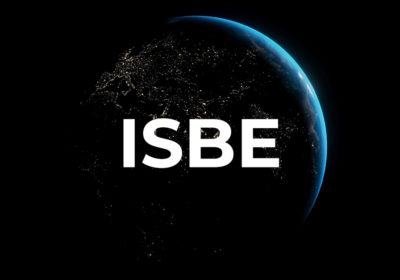In an era where digital interactions increasingly demand both privacy and compliance, the challenge of verifying user age online has grown more pressing than ever. Concordium, a blockchain company focused on trust and security, has introduced Concordium ID, a solution leveraging zero-knowledge proofs to allow users to prove their age without disclosing sensitive data. This innovation not only addresses regulatory requirements but also sets a precedent for broader digital identity management across Web2 and Web3

The rapid expansion of digital platforms, online gaming, and decentralized applications has brought increasing urgency to the issue of age verification in cyberspace. Until now, most systems for confirming a user’s age have been either intrusive—requiring the disclosure of sensitive personal data—or unreliable, relying on self-declaration methods that are easily manipulated. Concordium, a blockchain company known for its emphasis on regulatory compliance and privacy-preserving technologies, has stepped into this gap with the launch of Concordium ID, a next-generation identification solution based on zero-knowledge proofs (ZKP).
At its core, Concordium ID seeks to balance two critical but often conflicting objectives: safeguarding personal privacy and ensuring regulatory compliance in age-restricted digital environments. The application allows users to prove their age without revealing personal details such as date of birth, address, or government-issued credentials. Instead, it employs zero-knowledge cryptographic protocols, through which a user can mathematically prove they meet a certain condition—in this case, being above a required age threshold—without disclosing the underlying data. This innovation effectively replaces trust in centralized custodians of personal data with trust in cryptographic verification, marking a fundamental shift in digital identity management.
Unlike traditional identity verification methods that require sensitive information to be stored and transmitted across multiple platforms, Concordium ID enables a single encrypted identity that can be used across websites, apps, and blockchain protocols. This approach reduces the risk of data breaches, minimizes the attack surface for hackers, and avoids the accumulation of sensitive user information in corporate or governmental databases—systems that have historically proven vulnerable to misuse and exploitation. Furthermore, the decentralized nature of Concordium’s blockchain infrastructure ensures that no single entity has unilateral control over users’ credentials, which strengthens resilience against censorship and systemic failure.
The app will be available for both iOS and Android devices, and users will be able to create a Concordium account directly within the system. Through this account, they can verify their age seamlessly when accessing age-gated content or services, whether that involves online gaming platforms, adult content sites, or decentralized financial applications (DeFi). Importantly, Concordium has already secured integration with prominent digital wallets such as Coin98 and Safle, enabling a user base of more than 10 million people across over 170 countries to access this new verification method. The wallet-independent design of Concordium ID also means that it can be embedded directly into decentralized applications via an SDK, making it highly adaptable for the growing ecosystem of Web3 services.
From a technological perspective, the use of zero-knowledge proofs represents a significant leap forward. ZKPs allow one party (the prover) to demonstrate to another (the verifier) that a given statement is true—such as being over 18—without transmitting the information that would traditionally prove it, like the actual date of birth. This minimizes exposure of personal data and eliminates the need for intermediaries to validate or store information. In practical terms, it means that an online user can instantly prove compliance with age restrictions without risking identity theft, fraud, or intrusive surveillance. As governments and regulators around the world increasingly demand robust age verification for access to restricted digital content, this method offers a scalable and privacy-preserving pathway forward.
The timing of Concordium’s initiative coincides with heightened legislative momentum. Across Europe and the United Kingdom, regulatory bodies are enforcing stricter measures to ensure minors cannot access adult material online. In the United States, similar proposals are gaining traction, especially in light of concerns surrounding children’s exposure to harmful content and the rise of illicit activities conducted under digital anonymity. However, regulators have struggled to reconcile the need for enforcement with the imperative to safeguard citizens’ privacy. Most existing systems rely on centralized databases or mandatory disclosure of government documents, both of which introduce significant risks. Concordium’s decentralized, cryptographically verifiable approach offers a middle ground, addressing both policy objectives without sacrificing fundamental rights.
The company emphasizes that Concordium ID is not limited to age verification. Its architecture is designed for broader digital identity management, applicable to both Web2 and Web3 environments. For Web2 platforms, Concordium ID allows businesses to comply with legal requirements without building expensive in-house verification systems or retaining large stores of customer data. For Web3, the technology enables dApps, DeFi protocols, and blockchain-based games to verify user eligibility in a manner consistent with the decentralized ethos of the ecosystem. By embedding zero-knowledge proofs at the identity layer, Concordium is effectively building an infrastructure where users maintain sovereignty over their data while service providers achieve compliance and risk mitigation.
This dual utility highlights a larger technological trend: the growing reliance on privacy-preserving cryptography as the backbone of next-generation digital services. Zero-knowledge proofs, once considered an abstract field of academic cryptography, are rapidly being applied in practical scenarios ranging from financial transactions to online authentication. Concordium ID exemplifies how ZKP-based identity solutions can bridge the divide between regulatory needs and user expectations, creating a digital environment where trust is derived not from central authorities but from mathematics.
In the words of CEO Boris Bohrer-Bilowitzki, the web has historically lacked a viable and universal age verification system, leaving governments, companies, and users to rely on fragmented and often ineffective approaches. By integrating with established digital wallets and offering developers an open SDK, Concordium is laying the foundation for a broad ecosystem of privacy-first identity verification tools. If widely adopted, this system could reshape not only how age restrictions are enforced online but also how identity itself is handled in the digital economy.
Ultimately, Concordium ID represents more than just a solution to the specific challenge of online age verification. It signals the emergence of a new paradigm for digital trust, one where individuals retain control of their personal data and compliance mechanisms are embedded at the protocol level. As online interactions continue to expand into immersive environments, decentralized finance, and metaverse platforms, such innovations will become increasingly central to ensuring both safety and freedom in the digital age.



